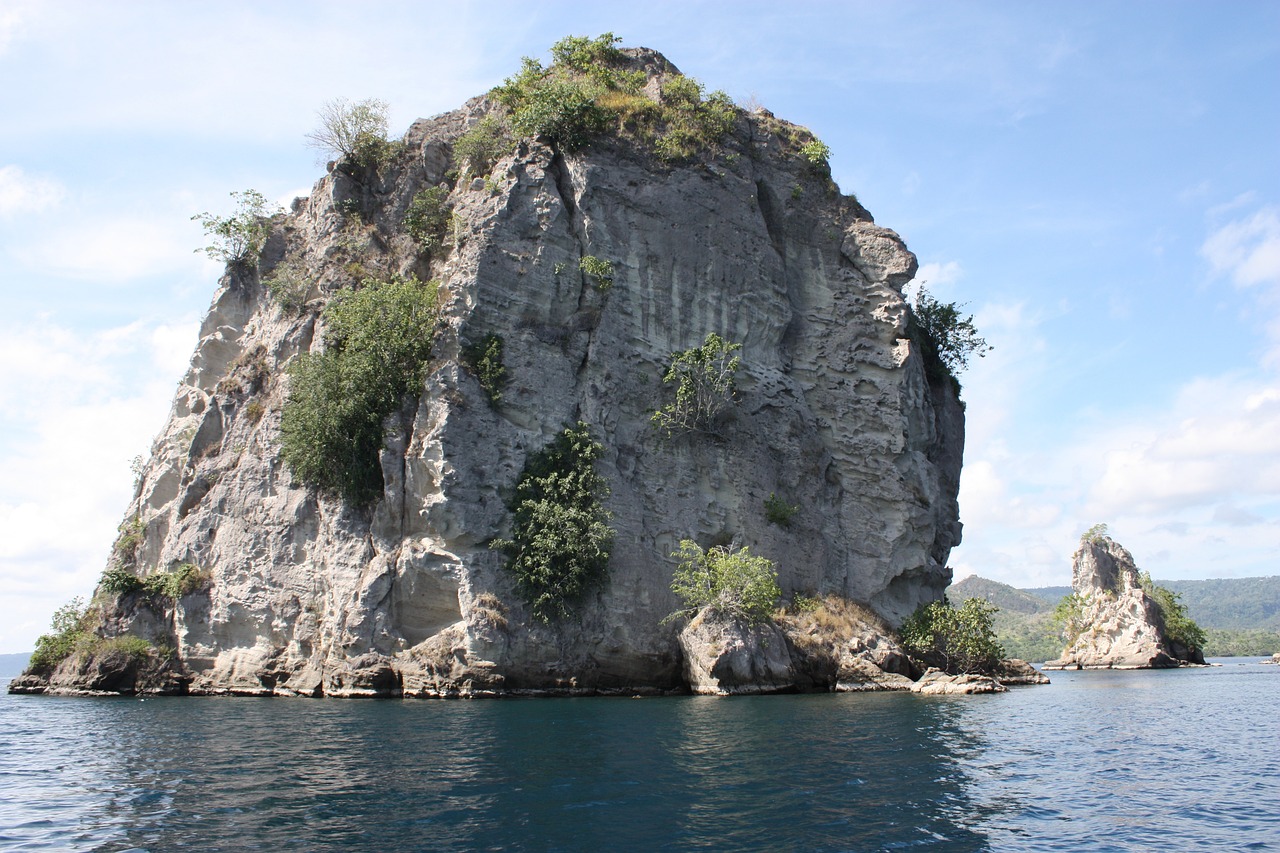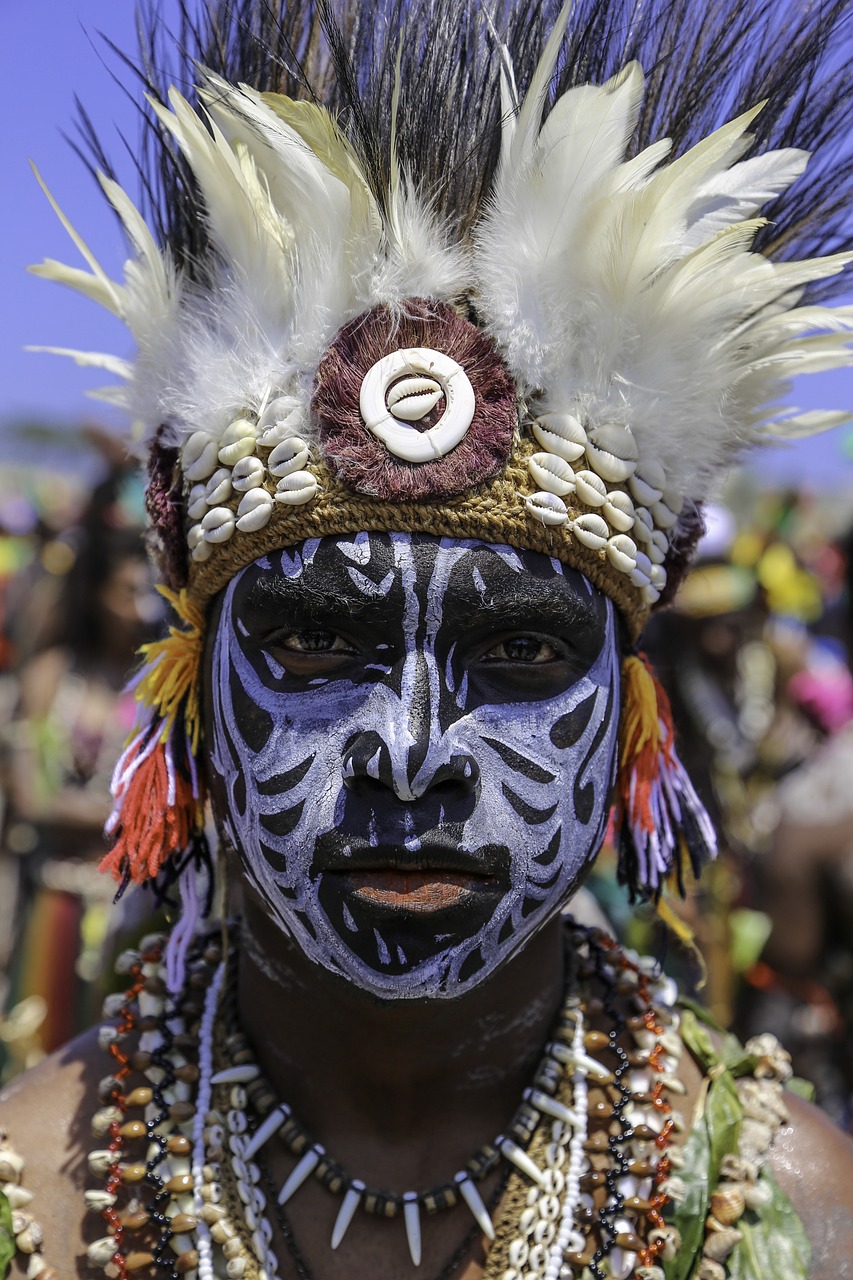Safety Tips for Remote Workers in Papua New Guinea
Remote work has become increasingly popular in recent years, allowing individuals to work from anywhere in the world. Papua New Guinea, a country known for its stunning landscapes and diverse cultures, is an attractive destination for remote workers seeking a unique experience. However, it’s essential to prioritize safety while working remotely in Papua New Guinea. This article will provide detailed safety tips to ensure a secure and enjoyable remote working experience.
1. Research Your Accommodation:
When planning to work remotely in Papua New Guinea, it’s crucial to research and choose accommodation that prioritizes safety. Look for reputable hotels, guesthouses, or serviced apartments that have positive reviews and are located in safe areas. Opt for properties that have security measures in place, such as CCTV cameras, secure entrances, and 24-hour staff availability.
- Location: Choose accommodation in safe and well-populated areas, preferably close to amenities and transportation hubs.
- Security Measures: Ensure the property has security features like CCTV cameras, secure entrances, and trained staff.
- Reviews: Read online reviews to get insights into the safety and security of the accommodation from previous guests.
- Emergency Procedures: Inquire about emergency procedures and the availability of medical assistance within the property.
- Secure Wi-Fi: Check if the accommodation offers secure Wi-Fi connections to protect your online activities.

2. Stay Informed about Local Safety Conditions:
Before and during your stay in Papua New Guinea, it’s essential to stay informed about the local safety conditions. Stay updated on any travel advisories or safety alerts issued by your country’s embassy or consulate. Monitor local news sources and online forums to get insights into the current safety situation in the areas you plan to visit.
- Embassy/Consulate: Register with your country’s embassy or consulate and subscribe to their safety updates.
- Travel Advisories: Stay updated on any travel advisories issued by your government regarding Papua New Guinea.
- Local News: Follow local news sources to stay informed about any safety concerns or incidents in the area.
- Online Forums: Participate in online forums or communities where travelers share their experiences and safety tips.
- Local Contacts: Establish local contacts who can provide you with reliable information and guidance.
3. Secure Your Digital Devices and Data:
Protecting your digital devices and data is crucial when working remotely in Papua New Guinea. Follow these tips to ensure the security of your devices and sensitive information:
- Password Protection: Set strong and unique passwords for all your devices, accounts, and Wi-Fi networks.
- Antivirus Software: Install reputable antivirus software and keep it updated to protect against malware and cyber threats.
- Secure Wi-Fi: Avoid using public Wi-Fi networks and opt for secure connections, such as a personal hotspot or a VPN.
- Data Backup: Regularly back up your important files and data to an external hard drive or cloud storage.
- Physical Security: Keep your devices physically secure and avoid leaving them unattended in public places.
4. Maintain Situational Awareness:
Maintaining situational awareness is crucial for your safety while working remotely in Papua New Guinea. Stay vigilant and be aware of your surroundings at all times.
- Observation: Pay attention to the people, vehicles, and activities in your vicinity to identify any potential risks or suspicious behavior.
- Trust Your Instincts: If something feels off or unsafe, trust your instincts and take necessary precautions.
- Avoid Risky Areas: Stay away from areas with a high crime rate or known for civil unrest.
- Nighttime Safety: Be cautious when moving around during nighttime and avoid poorly lit or deserted areas.
- Travel Companions: Whenever possible, travel with trusted companions, especially during excursions or trips to remote areas.
5. Use Reliable Transportation:
When traveling within Papua New Guinea, it’s essential to use reliable and reputable transportation options. Choose licensed taxis or rideshare services, if available, and avoid hitchhiking or accepting rides from strangers.
- Licensed Taxis: Use licensed taxis from reputable companies and ensure the driver’s identification is visible.
- Rideshare Services: If available, opt for well-known rideshare services that provide driver and vehicle information.
- Public Transportation: If using public transportation, be cautious of pickpocketing and keep your belongings secure.
- Travel Routes: Plan your routes in advance and inform someone about your travel plans and estimated arrival time.
- Vehicle Maintenance: If renting a vehicle, ensure it is in good condition and follow safe driving practices.

6. Respect Local Customs and Traditions:
Respecting the local customs and traditions is essential for a positive and safe experience while working remotely in Papua New Guinea. Familiarize yourself with the local culture and follow these guidelines:
- Dress Code: Dress modestly and appropriately, especially when visiting religious or traditional sites.
- Photography Etiquette: Always seek permission before taking photos of individuals, religious sites, or cultural events.
- Social Etiquette: Learn about local greetings, gestures, and customs to show respect and avoid unintentional offense.
- Religious Sites: Observe and follow any rules or guidelines when visiting religious sites.
- Food and Drink: Respect local dietary customs and be cautious when consuming street food or tap water.
7. Emergency Preparedness:
Being prepared for emergencies is crucial when working remotely in Papua New Guinea. Familiarize yourself with emergency procedures and contact information for medical assistance, police, and your country’s embassy or consulate.
- Emergency Numbers: Save emergency contact numbers for local police, medical services, and your embassy or consulate.
- Medical Assistance: Locate nearby hospitals or clinics and inquire about the availability of medical services.
- First Aid Kit: Carry a basic first aid kit with essential supplies for minor injuries or illnesses.
- Travel Insurance: Obtain comprehensive travel insurance that covers medical emergencies and evacuation if necessary.
- Evacuation Routes: Familiarize yourself with evacuation routes in case of natural disasters or civil unrest.
8. Cultural Sensitivity:
Being culturally sensitive is essential for building positive relationships and avoiding misunderstandings while working remotely in Papua New Guinea. Respect the local customs, traditions, and beliefs.
- Language: Learn a few basic phrases in the local language to show respect and facilitate communication.
- Non-Verbal Communication: Be mindful of non-verbal cues and gestures that may have different meanings in the local culture.
- Religious Sensitivity: Respect religious practices and avoid engaging in conversations or actions that may be considered disrespectful.
- Social Etiquette: Familiarize yourself with local social customs, such as greetings, gift-giving, and table manners.
- Cultural Events: Participate respectfully in cultural events and celebrations, following any specific guidelines or customs.
9. Mental and Physical Well-being:
Taking care of your mental and physical well-being is crucial while working remotely in Papua New Guinea. Follow these tips to maintain a healthy lifestyle:
- Exercise: Engage in regular physical activity to stay fit and alleviate stress.
- Healthy Diet: Maintain a balanced diet and be cautious when consuming unfamiliar food or water.
- Hydration: Drink plenty of water, especially in hot and humid climates.
- Stress Management: Practice stress management techniques, such as meditation or mindfulness, to maintain mental well-being.
- Rest and Sleep: Ensure you get enough rest and quality sleep to recharge and stay focused.

10. Personal Belongings:
Keeping your personal belongings safe and secure is crucial while working remotely in Papua New Guinea. Follow these tips to protect your valuables:
- Lock Valuables: Keep your valuables locked in a safe or secure storage when not in use.
- Bag Safety: Use a bag with secure closures and keep it close to your body, especially in crowded areas.
- Money and Cards: Carry only the necessary amount of cash and keep your cards in a secure wallet or money belt.
- Document Protection: Keep important documents, such as passports and visas, in a secure and waterproof pouch.
- Photocopies: Make photocopies of your important documents and store them separately from the originals.
11. Local Laws and Regulations:
Familiarize yourself with the local laws and regulations in Papua New Guinea to ensure you stay compliant and avoid any legal issues.
- Visa Requirements: Obtain the necessary visas and permits for your stay in Papua New Guinea.
- Restricted Areas: Respect any restricted areas or sites and obtain proper permissions if required.
- Drug Laws: Familiarize yourself with the local drug laws and avoid any involvement with illegal substances.
- Cultural Sensitivity: Respect local customs, traditions, and beliefs, avoiding actions that may be considered offensive or disrespectful.
- Photography Restrictions: Be aware of any restrictions on photography, especially in sensitive areas or with military personnel.
12. Local Contacts and Support:
Establishing local contacts and having access to reliable support is beneficial while working remotely in Papua New Guinea.
- Local Contacts: Connect with local professionals or expatriate communities who can provide guidance and support.
- Emergency Services: Save the contact information for local emergency services, including police and medical services.
- Embassy/Consulate: Know the location and contact details of your country’s embassy or consulate in Papua New Guinea.
- Trusted Networks: Join trusted networks or communities of remote workers who can offer advice and support.
- Language Assistance: If you don’t speak the local language, have access to translation services or language apps to facilitate communication.
Conclusion
By following these safety tips, remote workers can ensure a secure and enjoyable experience while working in Papua New Guinea. Prioritize research, situational awareness, and respect for local customs to make the most of your remote work adventure in this beautiful country. Remember to stay informed, take necessary precautions, and always prioritize your well-being and safety.
References
– Papua New Guinea Tourism Promotion Authority: www.papuanewguinea.travel
– U.S. Department of State – Papua New Guinea Travel Advisory: travel.state.gov
– UK Government Foreign Travel Advice – Papua New Guinea: www.gov.uk/foreign-travel-advice/papua-new-guinea

